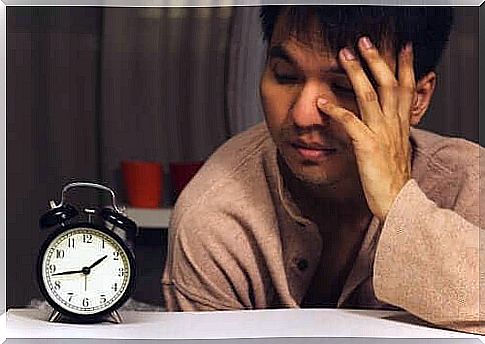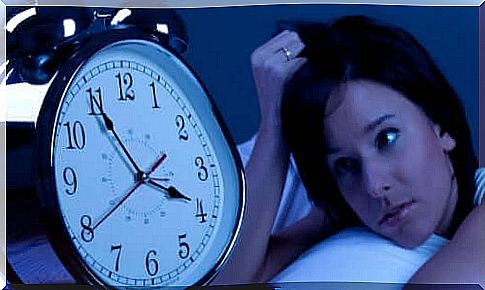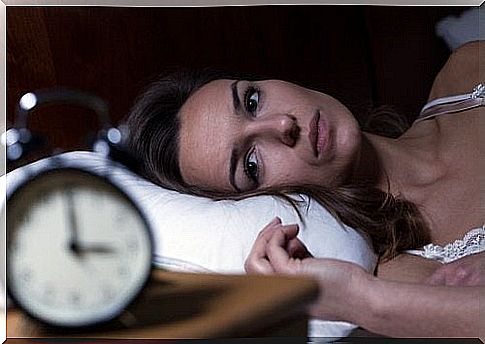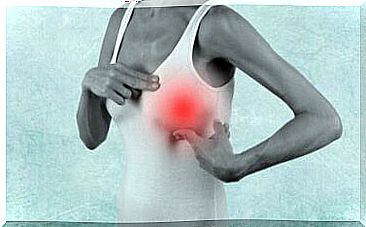Sleep Disorders: Getting Sleepy But Not Being Able To Sleep
When approaching sleep disorders, it is important to take into account the factors that contribute to their existence. It will therefore be necessary to change inappropriate behavior and habits.

Why can’t I sleep when I’m sleepy? If you’ve ever been in this situation, then you’ve had a sleep disorder. We invite you to learn more about sleep disorders through this article.
Insomnia is one of the most common sleep disorders in the general population. This disorder consists of a reduction in the ability to sleep. It can manifest itself in different ways, which give shape to different types of insomnia.
Sleep disorders: the different types of insomnia depending on the cause

Depending on the factor causing the disorder, insomnia is classified as follows.
1. Primary insomnia
Primary insomnia is that for which it is not possible to identify a clear cause for the origin of this sleep disorder. 10% of the population suffers from this type of insomnia.
This type of insomnia can be divided into two sub-categories depending on the manifestation and the origin of the problem:
- Idiopathic insomnia: this type of insomnia originates in childhood and seems to be linked to poor learning of the habit of sleeping
- Psychophysiological insomnia : this insomnia is characterized by a high level of psychophysiological activation during the initial phase of sleep. The sufferer is very worried about sleeping and goes to great lengths to fall asleep every night
2. Comorbid insomnia
Comorbid insomnia is one for which the cause is clear. In addition to treating insomnia per se, one must take into account the root cause of the disorder, the disorders that accompany it and even their consequences.
Sleep disorders: the different types of insomnia according to the duration
1. Transient or acute insomnia, one of the most common sleep disorders
Acute insomnia is one that lasts less than a month. It is the most frequent and the most generalized within the population. It is generally linked to factors that are sources of stress, which are then at the origin of the disorder.
Sudden changes in schedule, family problems, problems at work or even personal problems are the main factors at the origin of transient or acute insomnia. Sleep returns to normal after the source of stress in question has disappeared.
2. Short-term or subacute insomnia
Short-term or subacute insomnia is that which fluctuates between one and three months. It is sometimes linked to stressful events.
Usually, the situations that cause this type of insomnia are long lasting. The death of a loved one, a romantic break-up or even a serious illness are the main factors at the origin of this type of insomnia.
In addition, the affected person must face other types of problems such as anxiety, stress or low morale.
3. Long-term or chronic sleep disorder
A person with a chronic sleep disorder has difficulty getting to sleep or staying asleep. Specifically, the individual who suffers from a chronic sleep disorder has difficulty getting to sleep and sleeping continuously at least three times a week for at least three months.
This situation has repercussions on the functioning of the person during the day. People affected by this problem not only suffer from a lack of restful sleep, they also experience difficulties during the day on an emotional, mental or physical level.
Sleep disorders: the different types of insomnia according to the symptoms

1. Initial insomnia
The initial insomnia is that which concerns people who have difficulty falling asleep.
This type of insomnia particularly affects young people and is generally linked to medical problems, substance use or psychological or psychiatric problems such as anxiety disorders.
2. Intermediate insomnia
This type of insomnia is characterized by difficulty staying asleep.
Sleep is interrupted: the affected person wakes up several times during the night or for a long time.
3. Terminal insomnia
Terminal insomnia is that which occurs at dawn and causes unwanted morning rises. Normally, the wake-up call takes place two hours before the usual wake-up call. And once that happens, the affected person cannot get back to sleep.
Terminal insomnia is that which typically accompanies depressive disorder.
When it comes to fighting sleep disorders, it is important to consider the factors causing the disorder. Affected individuals will certainly have to change some inappropriate habits.
But that’s not all … It is also important to ignore false thoughts that cause concern in order to reduce possible strong emotional activity.









